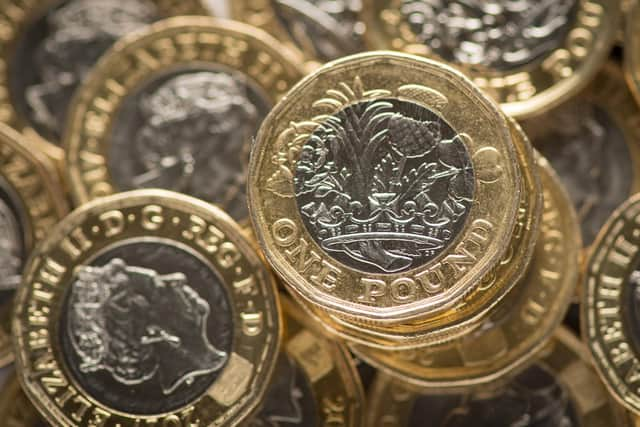Pound slides to new 37-year low against dollar in 'concerning' move: reaction
Sterling fell to about $1.135 in morning trade before rebounding slightly, compared to $1.1478 at the previous close, marking its lowest level since 1985, fuelled in part by weaker-than-expected retail sales data.
A weak pound means people travelling overseas will find their spending money will not stretch as far and the cost of imports rises. However, it can provide a lift to firms exporting goods and services.
Advertisement
Hide AdAdvertisement
Hide AdIt comes at a time when the rate of UK consumer price inflation is running at a near 40-year high, despite slipping to an annual rate of 9.9 per cent in August from July’s 10.1 per cent.


Walid Koudmani, chief market analyst at financial brokerage XTB, said: “The situation with the pound continues to be concerning after it reached a 37-year low against the dollar.
“While dollar strength is certainly playing into it with the [US] Federal Reserve taking significant action to contain inflation, the precarious situation the UK economy finds itself in, further highlighted by the retail sales report, is not helping either.
“The Bank of England has a tough job ahead of it as it must strike the balance between managing inflation, supporting the currency while simultaneously not negatively affecting the overall economy further.”
The central bank has predicted that the UK will fall into recession towards the end of this year and it is expected to keep pushing up interest rates in a bid to curb inflation.
Thanim Islam, market strategist at international business payments specialist Equals Money, said: “The 16th September 1992 was labelled as Black Wednesday, and on that day the UK government was forced to withdraw the pound from the European Exchange Rate Mechanism, causing the pound to plummet. 30 years on and it’s looking ugly out there for sterling.
“Similarly to 1992, sterling has been under pressure amidst high inflation and low growth expectations. The old saying is that past performance is not an indicator of the future, but at the moment it’s looking troublesome out there for the pound.”
Comments
Want to join the conversation? Please or to comment on this article.